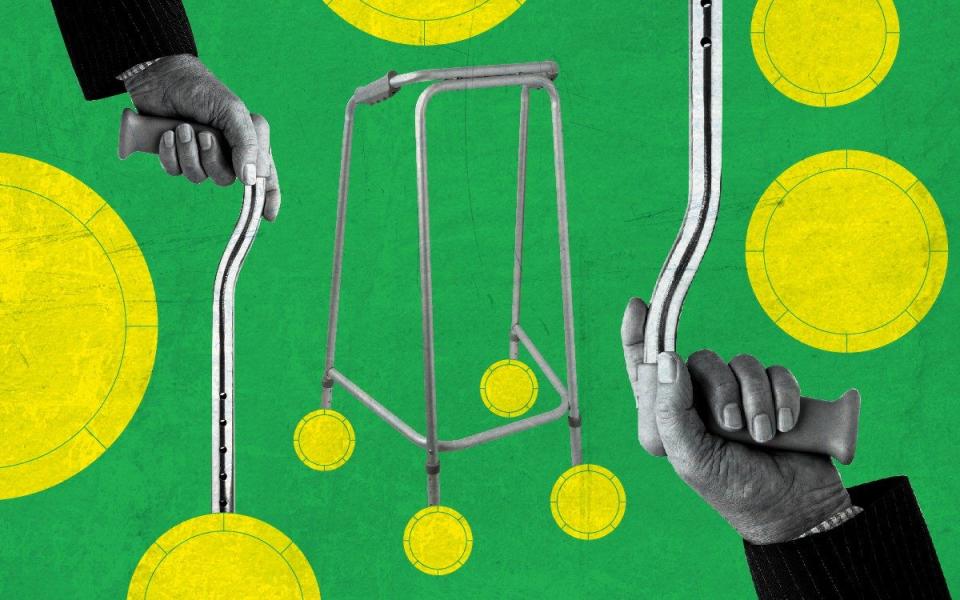Why inflation is hurting over-65s more than anyone else

Older people are being hit harder by rising prices than anyone else, analysis has revealed.
The Consumer Price Index measure of inflation has fallen to 8.7pc, but over-65s face even bigger annual increases in their living costs.
When broken down by age, the inflation rate for those aged 75 and over is 9.8pc, according to analysis by pension firm Aviva.
People aged 65 to 74 have seen their expenses go up by 9.2pc. By contrast, under-30s have had their costs increase by 8pc.
Inflation was 8.5pc for those aged 30 to 49 and 8.6pc for those 50 to 64, the report said.
Alistair McQueen, of Aviva, said one of the factors “punishing” older households was that they spend a bigger proportion of their budgets on the essentials of energy and food. This is because they tend to have lower incomes and therefore less money to spend on non-essentials.
He said: “The pressure is now shifting from heating towards eating: energy bills are coming down, which is lifting some of the pressure, but this pressure is being replaced by food inflation at a near all time high of 19.3pc. This is hitting older households hard.”
The analysis was based on official figures from the Office for National Statistics, which showed how much households spend on various costs.
The average household spends around 11pc of their budget on food and around 5pc on energy, while over-75s spend around 14pc of their budgets on food and 8pc on energy.
Mr McQueen said the state pension plays a limited role in protecting older people from the difficulties posed by inflation.
This year, the state pension jumped 10.1pc, the biggest rise on record. This is because of the Government’s “triple lock” policy, which increases state pension payments each April in line with the highest of the previous September’s inflation, wage growth or 2.5pc.
However, Mr McQueen said less than half of pensioners’ income is derived from the state. He said: “The other income that many retirees will probably not be benefiting from the same inflation linked increases.”

 Yahoo Finance
Yahoo Finance 